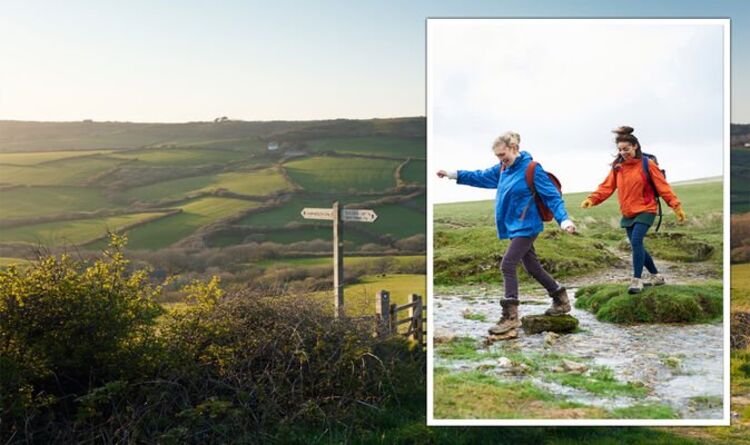Staycations: Britons break ‘vital’ rules on walking trips in the UK – what to avoid
Farmer slams UK staycations for 'taking the biscuit'
We use your sign-up to provide content in ways you’ve consented to and to improve our understanding of you. This may include adverts from us and 3rd parties based on our understanding. You can unsubscribe at any time. More info
According to research from Rohan, 88 percent of British tourists break the Countryside Code when they go out walking. It found that only one in eight Britons know the Code.
The research questioned 2,000 Britons on their knowledge of the Countryside Code and what they do to protect the UK’s beautiful landscapes.
By far the most common way Britons are breaching the Code is by going through an open gate and closing it behind them.
Sam Durham, Chief land management adviser at the National Farmers’ Union (NFU) said: “Generally a gate is closed or open for a reason, and it has been left that way by the farmer.
“It may be left open to give livestock access to food and water, or because they are working in the field and require regular access.”

More than 45 percent of Britons have closed a gate that they found open while out on a walk in the UK.
The second most common way of breaking the Code is by leaving a designated footpath to make their own route.
Almost three in 10 Britons had tried to make their own route while out walking in the British countryside.
Another commonly broken rule was climbing over fences, walls or hedges away from the footpath.
Walkers that stray from the designated footpath could potentially damage crops and soil or disturb livestock.
They could also accidentally destroy areas left for wildlife such as nesting birds or sand lizards.
Almost 20 percent of Britons had broken the Countryside Code by taking a rock, stone or plant home.
Another 13 percent had let their dog off a lead in an area where dogs have to remain under control.

Out of control dogs could attack livestock and could put themselves and others in danger on farmland.
One in 10 Britons admitted to picking a piece of fruit or a vegetable from a farmer’s field while out on a walk.
Just under 10 percent had fed a wild or farm animal. It might be tempting to offer an animal a treat but it could unintentionally hurt the animal.
Many animals are on strictly controlled diets and could become ill from treats. Wild animals could be encouraged to stray closer to humans if they are fed and could become aggressive.

Millennials (25-34 year olds) and Gen Z (18-24 year olds) are the most likely generation to have some awareness of the Countryside Code.
However, they are also most likely to admit to breaking the code and more than nine in 10 millennials have done so.
Giles Polito, marketing director at Rohan, said: “We’ve long worked to inspire people to enjoy the great outdoors and all it has to offer and it’s been fantastic to see more walkers than ever enjoying the British countryside in recent years.
“That being said, making small changes to our behaviour now will play a vital role in protecting these spaces for years to come, which is why the Countryside Code is so important.”
Source: Read Full Article



